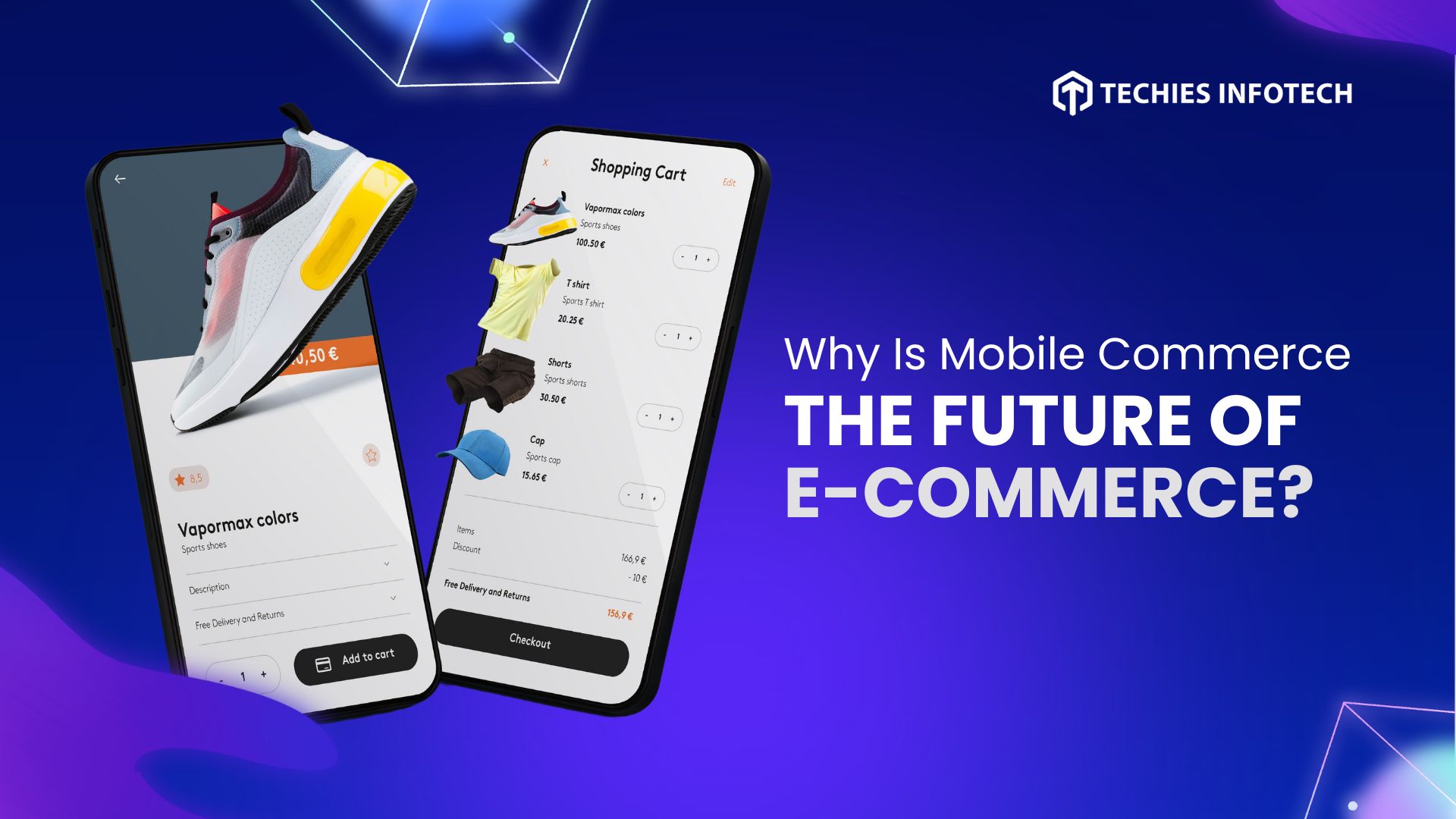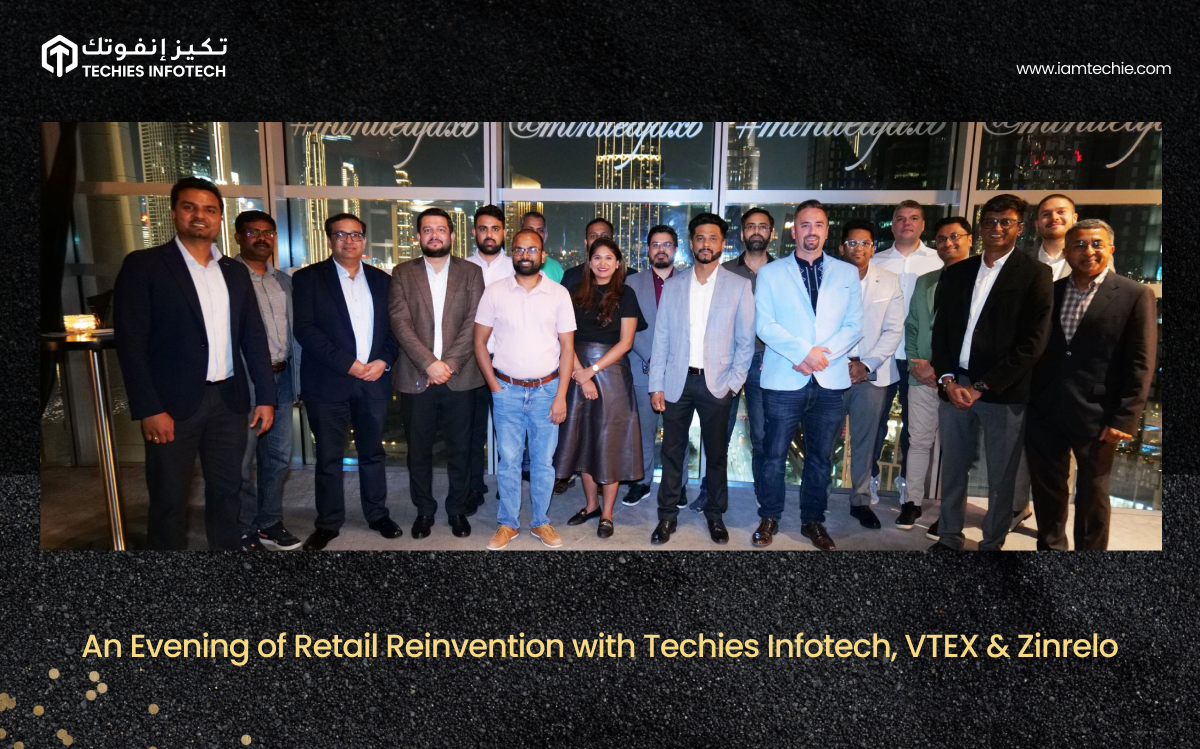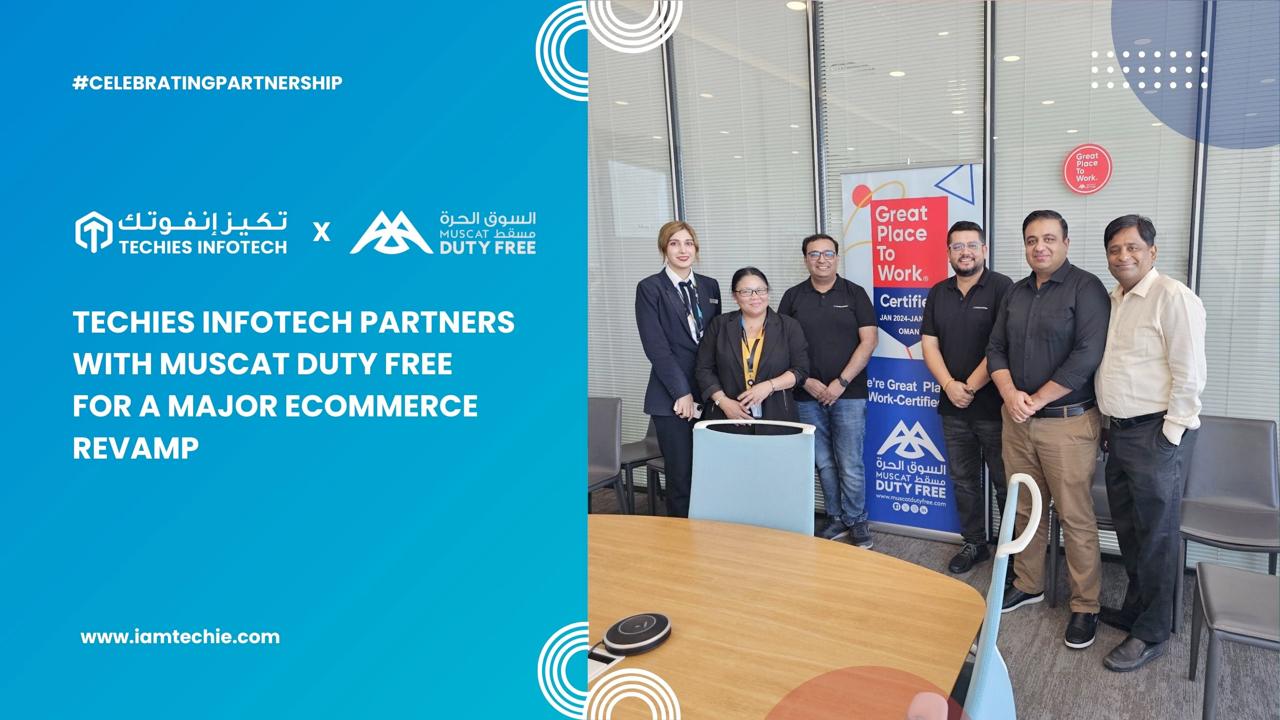According to the Market Insight report at Statista, mobile e-commerce sales will be $ 2.2 trillion by the end of 2023 and make up to 60% of the total e-commerce sales worldwide. The movement of m-commerce is a steady upward graph from 56% in 2018 to an estimated 62% in 2027.
Mobile commerce, often termed m-commerce, refers to the buying and selling of goods and services through mobile devices such as smartphones and tablets. This revolutionary concept has evolved significantly, transforming the way businesses interact with consumers. Initially, it began with basic mobile browsing and progressed to secure transactions and dedicated mobile applications, shaping a seamless shopping experience on handheld devices.

Rise of Mobile Devices and Connectivity
The meteoric rise of mobile devices and their omnipresence has been instrumental in propelling m-commerce. The evolution from simple feature phones to powerful smartphones, coupled with enhanced connectivity through high-speed internet and 5G, has revolutionized how people engage with the digital world. This shift has given consumers the power to access information, make purchases, and conduct transactions conveniently at their fingertips, regardless of their location.
The introduction of m-commerce marks a pivotal moment in the e-commerce development landscape, shaping a new era where shopping experiences are personalized, accessible, and deeply integrated with the capabilities of handheld devices. This evolution owes its momentum to the widespread adoption of mobile devices and the seamless connectivity they provide, setting the stage for a transformative shopping experience.

Growth and Dominance of Mobile Usage
The rise in mobile device ownership has been nothing short of staggering. Statistics globally depict an exponential increase in smartphone and tablet ownership, showcasing an unprecedented adoption of these devices. From urban hubs to remote corners, mobile devices have become ubiquitous, with ownership statistics demonstrating a paradigm shift towards a mobile-centric lifestyle.
- A shift in Consumer Behavior toward Mobile Shopping
Consumer behavior has undergone a remarkable transformation, steering towards mobile shopping as a preferred method. The ease, convenience, and accessibility offered by mobile devices have reshaped how consumers interact with brands and make purchases. This shift signifies a fundamental change, indicating that consumers now prefer the flexibility and immediacy of mobile shopping over traditional methods.
- Comparison of Mobile vs. Desktop Usage in E-commerce
When it comes to the e-commerce roadmap, the scales have tipped in favor of mobile usage. Comparing mobile versus desktop usage in e-commerce activities reveals an interesting trend. Mobile devices have steadily surpassed desktops in terms of traffic, indicating that more consumers are now turning to their smartphones and tablets for browsing, product research, and completing purchases.

Convenience and Accessibility
- Accessibility Anytime, Anywhere
Mobile devices have unlocked a new realm of accessibility, offering the convenience of accessing e-commerce platforms anytime, anywhere. Whether lounging at home, commuting, or traveling, the portability of mobile devices ensures that consumers have uninterrupted access to a plethora of shopping options, breaking barriers of time and location.
- Seamless User Experience on Mobile Devices
The user experience on mobile devices has undergone a remarkable transformation, evolving into a seamless and intuitive journey. Optimized interfaces, responsive designs, and user-friendly apps have enhanced the shopping experience, ensuring that browsing, product discovery, and checkout processes are streamlined and effortless, fostering a delightful shopping journey for consumers.
- Integration of Mobile Payment Options
Mobile commerce has seamlessly integrated various payment options, making transactions hassle-free. From mobile wallets to contactless payments, the integration of diverse payment methods into mobile platforms has accelerated the checkout process, providing consumers with a secure and convenient way to make purchases, further enhancing the overall accessibility of mobile shopping.
Influence of App Usage on Shopping
Mobile apps development have become integral to the e-commerce landscape, offering a dedicated and immersive shopping experience. They serve as gateways for consumers to access a plethora of products and services, providing a convenient, one-stop platform tailored to individual preferences and needs.
Moreover, personalized shopping apps have revolutionized how consumers interact with brands. These apps leverage data analytics and user behavior to curate personalized recommendations, offers, and content, creating a tailor-made shopping journey. This level of customization heightens user satisfaction and drives engagement, fostering a stronger connection between consumers and brands.
Apps play a pivotal role in fostering user engagement and building brand loyalty. Through features like push notifications, loyalty programs, and seamless navigational interfaces, apps create avenues for constant interaction and incentives for returning customers. This engagement fosters a sense of loyalty, encouraging repeat visits and purchases.
Mobile Commerce and Social Media Integration
Social media platforms have transformed into more than just networking hubs; they’ve become influential avenues for mobile shopping. With the integration of shopping features, consumers can seamlessly discover, explore, and purchase products directly through these platforms, blurring the lines between social interaction and commerce.
Social commerce, driven by influencer marketing, has reshaped the way consumers make purchasing decisions. Influencers, with their credibility and reach, endorse products on social media platforms, influencing consumer behavior. Their recommendations and reviews propel mobile users toward making informed purchase decisions, effectively merging social influence with commerce.
Brands are leveraging the power of social networks to drive mobile sales. By strategically placing ads, offering exclusive deals, and creating shoppable content, businesses harness the immense reach and engagement potential of social platforms to drive traffic, conversions, and, ultimately, sales through mobile devices.
Advancements in Mobile Technology
- Impact of Emerging Technologies on Mobile Shopping
Emerging technologies have catalyzed a profound transformation in mobile shopping. Innovations like artificial intelligence (AI), augmented reality (AR), and virtual reality (VR) have revolutionized the way consumers interact with products, providing immersive and personalized experiences right at their fingertips.
- Role of AI, AR, and VR in Enhancing Mobile Shopping Experiences
AI-powered recommendation engines analyze user behavior to offer tailored product suggestions, enhancing the shopping journey. AR enables users to visualize products in real-world settings through their mobile devices, facilitating informed purchasing decisions. VR takes immersion a step further, allowing users to experience products virtually, revolutionizing the way they shop.
- Mobile Optimization and Responsive Designs
Mobile optimization and responsive designs play a crucial role in ensuring seamless user experiences across devices. Websites and apps optimized for mobile devices offer intuitive navigation, faster load times, and adaptability to different screen sizes, ensuring that users can effortlessly browse and make purchases on their smartphones or tablets.
Challenges and Future Trends in Mobile Commerce
- Security Concerns in Mobile Transactions
Security remains a paramount concern in mobile transactions. While convenience is key in mobile commerce, ensuring the safety of sensitive information during transactions is critical. Safeguarding against potential threats such as data breaches, identity theft, and fraudulent activities is essential to build and maintain consumer trust in mobile transactions.
- Prediction of Future Trends and Innovations in m-Commerce
The future of mobile commerce is ripe with exciting trends and innovations. From the integration of voice commerce and AI-driven chatbots to the rise of mobile wallets and the Internet of Things (IoT), the landscape of m-commerce is evolving rapidly. Personalization, seamless experiences, and advancements in payment technologies are anticipated to shape the future of mobile commerce.
- Overcoming Challenges for a More Robust Mobile Shopping Environment
Overcoming challenges in mobile commerce is imperative for creating a robust shopping environment. Implementing robust encryption methods, multi-factor authentication, and stringent security protocols can help address security concerns. Additionally, continuous innovation, user education on security measures, and collaborations between tech firms and security experts are vital to ensure a safe and reliable mobile shopping experience.
Conclusion
For businesses, adopting a mobile-centric strategy is not merely an option but a strategic imperative. Embracing a mobile-first approach ensures that businesses stay aligned with evolving consumer preferences, delivering exceptional user experiences across mobile devices. It’s an invitation to prioritize mobile optimization, leverage emerging technologies, and integrate robust security measures to create a seamless and secure shopping environment.
If you want E-Commerce Development Services, you can contact the best E-Commerce Services Provider in the town.












